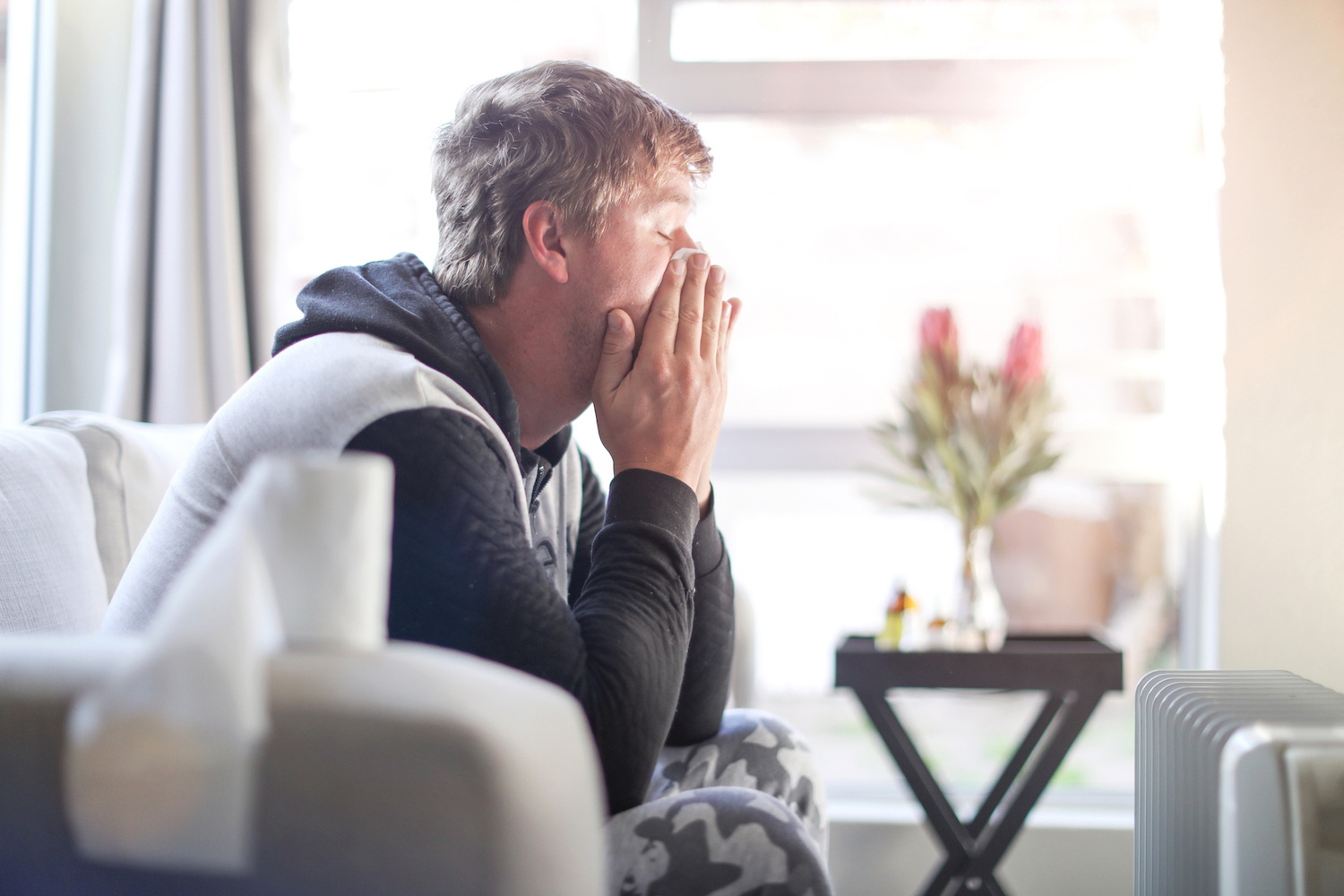
Whether this includes you or not it doesn’t hurt to be a little prepared, but this doesn’t involve raiding every supermarket in your vicinity for toilet paper. Here’s how to prepare for potential self-isolation and what to do if it actually happens.
1. Add a little extra food to your stores every time you hit the shops
Health authorities advise that there’s no need to bulk-buy food products but say it’s prudent to have a small stock of non-perishable groceries in case you do need to self-isolate for 14 days. However, you can just ask a mate to drop some items at your door and in most parts of the country you can order groceries online.
When stacking your fridge and pantry, nutritionist Brittany Darling says there are two factors to consider.
“Shelf life,” Darling told Men’s Health, and, “Nutrient contents of food to support your immune system.”
So skip the toilet paper aisle and head straight to the non-perishables.
Vitamin C rich foods
“Vitamin C is a well know nutrient for both innate (first response) and adaptive immunity,” Darling says. “Vitamin C accumulates in phagocytic (“pathogen killing”) cells. It plays a role in the cleanup at the site of infection and reduces potential tissue damage.”
Darling says eating a diet rich in fruits and vegetables will supply adequate vitamin C to support your immune system.
“The fresher the foods, the better, as being a water-soluble vitamin, levels decline in foods each hour after picking,” she explains. “I recommend stocking up on frozen fruit, including berries and mango and frozen vegetables such as broccoli, spinach, and cauliflower, to get your daily dose of vitamin C while in isolation.”
Fermented Foods
“Fermented dairy products like kefir, have been used for centuries,” Darling says. “Not only do they contain probiotics, which support the immune system, but they also have a longer shelf life than regular dairy products.”
Protein-rich foods
“Protein is a macronutrient that is often overlooked when it comes to immunity,” Darling explains. “The deficiency of protein and amino acids impairs immune function and increases your susceptibility to pathogens.”
Her go-to, long-lasting protein sources include dried or tinned legumes like lentils or chickpeas, quinoa, nuts and seeds.
“Not only are they a source of protein, but they are also high in zinc and selenium,” she says. “Selenium plays a crucial role in controlling a virus’s ability to replicate, and suboptimal zinc status will impair the immune response.”
Meal ideas
For breakfast, nutritionist Rick Hay says stock up on items like plant-based protein powders and rice milk, almond milk or coconut milk for healthy smoothies.
“Superfood powders like acai or spirulina can be added to smoothies to increase vitamin and mineral intake,” he told Men’s Health. “Frozen or tinned fruits can be used for this purpose too.”
“Porridge is a quick nutritional breakfast that can be made with water if milk or alternative milks run low.”
Rick’s lunch ideas include cans or sachets of plant-based soups, frozen burgers and frozen veg.
Stock up on crackers and nut butters to make long-lasting, healthy snacks.
“There are also the good old favourites like baked beans which now come in various flavours so that you don’t have to stick with the one variety,” he said.
2. Do not leave your area of quarantine
This seems like a no-brainer but do not go into work, get on public transport or attend public spaces. Stay on your property for the duration of your isolation.
Us this time to Netflix binge or catch up on books you need to read.
3. Stay away from your housemates
If you share a home with others, health authorities suggest you stay seperate as much as possible. This might involve setting up camp in a different room, wearing a surgical mask when moving around and using a seperate bathroom, if available.
Make sure that you do not share a room with people who are at higher risk including the elderly and immunosuppressed.
Only use communal spaces when no once else is around and then thoroughly disinfect the area. Don’t share utensils or cutlery.
4. Wash your hands properly
Wash your hands for 30 seconds and follow the proper procedure. Ensure you wash your hands before entering an area used by other people, after using the bathroom, after coughing or sneezing and before putting on and after removing face masks.
5. Keep an eye out for symptoms
If you develop a fever, a cough, sore throat or shortness of breath while house-bound, call your doctor or healthdirect on 1800 022 222. When you call, tell them where you have travelled or if you have been in contact with a confirmed case.
If your symptoms are severe visit your local Emergency Department and immediately tell staff where you have travelled or if you have been in contact with a confirmed case. If you have a surgical mask handy, wear one.
6. Stay mentally healthy
The current climate is undoubtedly anxiety-inducing and self isolation can take an additional toll on mental health. The best thing you can you do is try to keep to a daily routine, stay in touch with your family and friends, and, if you’re feeling up to it, do regular exercise without leaving the home.















